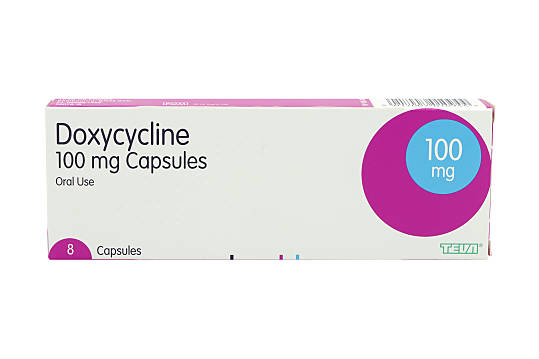Signs of Chlamydia

Medically reviewed by
Dr Kathryn BasfordLast reviewed: 01 May 2019
How to spot the symptoms of chlamydia

Key takeaways
An estimated 50% of men and over 70% of women do not show any symptoms, so chlamydia often goes unnoticed
Typical symptoms of chlamydia include: itching or burning, discharge, pain when urinating, pain and/or bleeding when having sex, or pain in the lower abdomen for women and pain around the testicles for men
When chlamydia is diagnosed at an early stage, treatment is both swift and effective. However, if the infection is left untreated it can lead to complications including arthritis, Pelvic Inflammatory Disease (PID), and premature births
If you think you may have caught chlamydia, you can save time and order your chlamydia test online through us
Chlamydia symptoms vary and they are not always noticeable. With an estimated 50% of men and over 70% of women not showing any symptoms, chlamydia often goes unnoticed, which is why is passed on extremely quickly within the population.
If you are experiencing chlamydia symptoms or believe you may have contracted the infection, you should get tested. Some other sexually transmitted infections can cause the same symptoms as chlamydia, which is why testing is essential in order to diagnose chlamydia.
What are the symptoms of chlamydia?
In cases where symptoms of chlamydia become noticeable, they usually appear one to three weeks following the date of infection. However, the disease often remains symptomless and it can take months or years before patients notice any symptoms. Men and women who are infected with chlamydia are often unaware of the infection and pass it on to other partners. When chlamydia is left untreated for a long period of time, it can cause damage to the reproductive system.
Chlamydia can cause some different symptoms in men and women. But in both men and women, it can cause an infection in the rectum, eyes and throat. When it causes an infection in the rectum the symptoms can be discomfort and discharge.
If the chlamydia bacteria infect the eyes, it can cause irritation, pain and conjunctivitis. When chlamydia is transmitted during oral sex, it can cause a throat infection.
Symptoms in men
Typical symptoms of chlamydia include:
- white/cloudy, gooey or watery discharge from the tip of the penis
- skin Irritation at the tip of the penis
- pain while urinating (burning sensation)
- pain around the testicles
Some of these symptoms may disappear within days, which can cause men to assume that the problem was temporary and trivial. But the infection can still be present even if the symptoms get better. If you’ve noticed any of these chlamydia symptoms you must get tested, even if your symptoms have improved. For more in depth information, see our chlamydia symptoms in men guide.
from £18.00
from £30.99

No results found.
Please check your spelling or try another treatment name.
Symptoms in women
In women, the symptoms can include:
- itching or burning in or around the vagina
- abnormal vaginal discharge (secretion) that may have an unusual colour or smell
- bleeding between periods and painful/heavy periods
- pain and/or bleeding when having sex
- lower abdominal pain
For more in depth information, see our chlamydia symptoms in women guide.
Testing For Chlamydia
The symptoms of chlamydia are quite non-specific and they can indicate a variety of infections. If you experience any of these symptoms, you need to visit your GP or GUM clinic to get tested. Or, you can save time and order your chlamydia test online from ZAVA and receive it within 48 hours.
If you're suffering from an eye infection which does not clear when using a standard conjunctivitis treatment, you should also consider getting tested for chlamydia.
Who can get chlamydia?
Anyone can catch chlamydia when having unprotected sex. There's no way of telling whether or not a new sexual partner has chlamydia. Young people are the most at risk of contracting chlamydia, with 88% of all new cases being diagnosed in the under-25s for women and 69% among men.
You have a higher risk of contracting chlamydia and subsequent complications if you:
- have had multiple sexual partners in the last year (the higher the number of partners the greater the risk)
- do not use condoms
- have already contracted an STI
Early treatment is the key
When it’s diagnosed at an early stage, chlamydia can be treated quickly and effectively. But if the infection is left untreated, it can cause the following complications:
- In women it can cause Pelvic Inflammatory Disease, which can lead to infertility
- It can cause reactive arthritis (Reiter's Syndrome)
- If you’re pregnant and have chlamydia it can cause a miscarriage or premature birth. There is also a risk of passing the infection to the newborn baby during delivery, which can cause a severe infection
If you're concerned that you may be infected, it is important that you don't just wait around, but get tested right away. If you feel embarrassed or if STIs are something you'd rather not discuss with your GP, you can get tested quickly and discreetly by ordering a chlamydia test kit from our website.
No symptoms of chlamydia?
If you know you're infected with chlamydia, there are two good reasons for getting treated immediately.
1) The infection can cause complications and spread to other parts of your body, starting with your reproductive system.
2) You can infect any sexual partners you have, and they might then unknowingly infect more people in the future.

Dr Kathryn Basford is a qualified GP who works as a GP in London, as well as with ZAVA. She graduated from the University of Manchester and completed her GP training through Whipps Cross Hospital in London.
Meet our doctorsLast reviewed: 01 May 2019
-
Chlamydia - uncomplicated genital, NICE/Clinical Knowledge Summaries [accessed February 2023]
-
Chlamydia, Symptoms, National Health Service [accessed February 2023]
-
Chlamydia, Sexwise [accessed February 2023]
-
Facts about chlamydia, European Centre for Disease Prevention and Control (ECDC) [accessed February 2023]
-
Clinical manifestations and diagnosis of Chlamydia trachomatis infections, UpToDate [accessed February 2023]
Bacterial infections of chlamydia need to be treated with antibiotics. ZAVA offers a range of these through a fast and discreet service.










